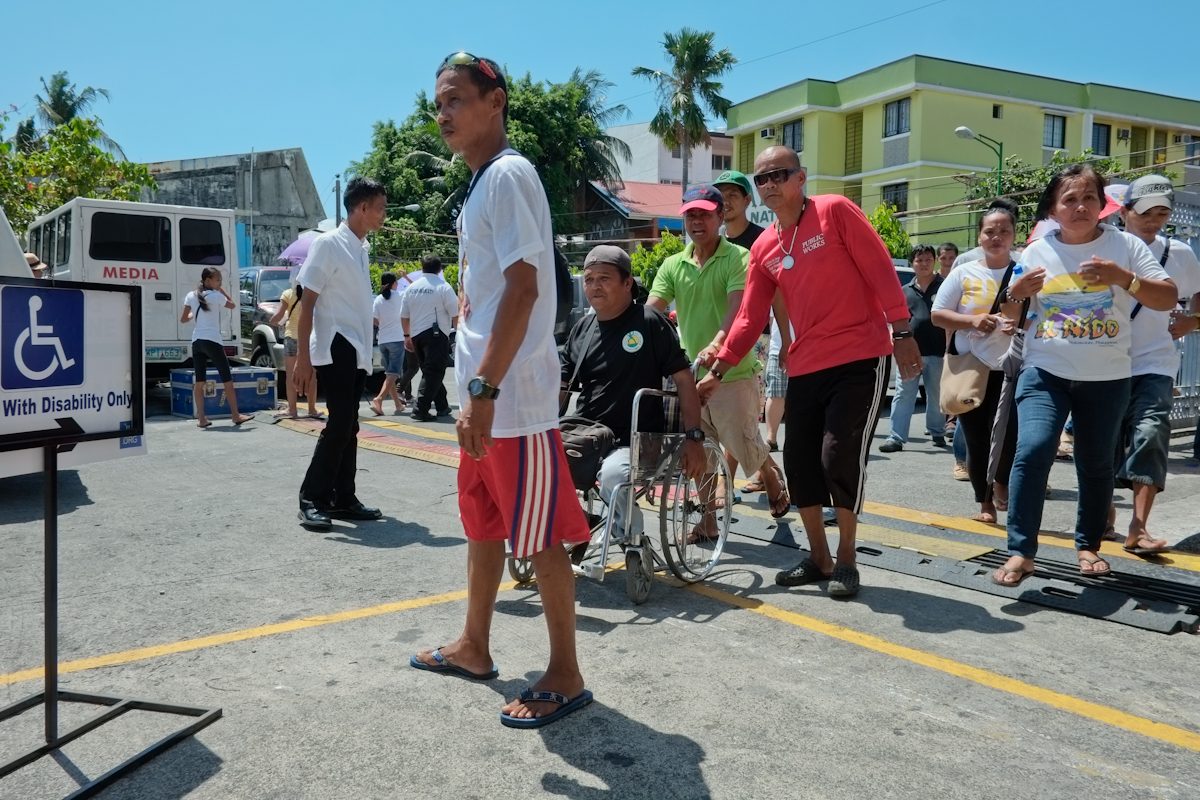SUMMARY
This is AI generated summarization, which may have errors. For context, always refer to the full article.

MANILA, Philippines – A recent study released by the International Labor Organization (ILO) found that half of the world’s population lacks adequate social protection – something that rings true especially for persons with disabilities (PWDs).
In celebration of the International Day for PWDs, the National Council on Disability Affairs (NCDA) called on the government to expand the social protection given to the sector, particularly in terms of health coverage.
“Social protection is very inadequate for PWDs. We are pushing for automatic PhilHealth membership,” said NCDA Executive Director Carmen Zubiaga on Monday, December 4.
“The PhilHealth services should also include an annual checkup, because PhilHealth only covers inpatient services. You first have to be admitted before you can be treated. It also has to have outpatient services like x-ray and laboratory,” she added.
PWDs are already entitled to this benefit under Republic Act No. (RA) 7277 or the Magna Carta for PWDs. But Zubiaga said the law still needs a memorandum circular approved by the PhilHealth Board, which would set the implementing guidelines. (FAST FACTS: What persons with disability are entitled to)
Inclusivity
Aside from the universal health coverage, advocates are also pushing for the establishment of a Persons with Disability Affairs Office (PDAO) in each city or municipality as stated in RA 10070. (READ: LGU empowers persons with autism through employment)
InciteGov program manager Niño Versoza said most LGUs have failed to comply with the law. Instead of having a PDAO in their area, they simply designate PWD-related tasks to a specific person.
“Having two people attend to PWD affairs is already big manpower [if you look at the trend in LGUs]. There are really areas where there is no person designated to cater to the needs of the PWDs. This is especially in rural areas where PWDs become more vulnerable,” he said.
A PDAO does not only assist PWDs in an area, but also coordinates with them so they would be involved in local planning. (READ: Here’s how you can apply for a PWD ID)
“If there’s no general assembly, you have weaker programs for PWDs because they are not convened and you can’t see their demands,” said Versoza.
During Monday’s celebration, Bureau of Local Government Supervision Director Odilon Pasaraba of the Department of the Interior and Local Government (DILG) committed to auditing LGUs which haven’t complied with the law. He also said that they already released a memorandum circular to help organize PWDs.
A gray area, however, is whether the DILG will incentivize or penalize LGUs.
Accessibility
The NCDA, together with Global Electric Transport (GET) Philippines, also launched a model of PWD-friendly public transportation. (READ: Tricycles for the disabled a dream come true in Marikina)
Transportation Secretary Arthur Tugade said this would be part of the government’s public utility vehicle (PUV) modernization program, according to Zubiaga.
“In most countries, PWD-accessible public transportation is automatic. But here, it slips through the cracks… When we met with [the NCDA], they explained to us their daily plight. Their biggest plight is mobility,” said GET Philippines president Freddie Tinga.
“They don’t want to be assisted. So if you can give them direct access to a vehicle that won’t require help from others, it’s going to be a perfect solution,” he added. – Rappler.com
Add a comment
How does this make you feel?
There are no comments yet. Add your comment to start the conversation.